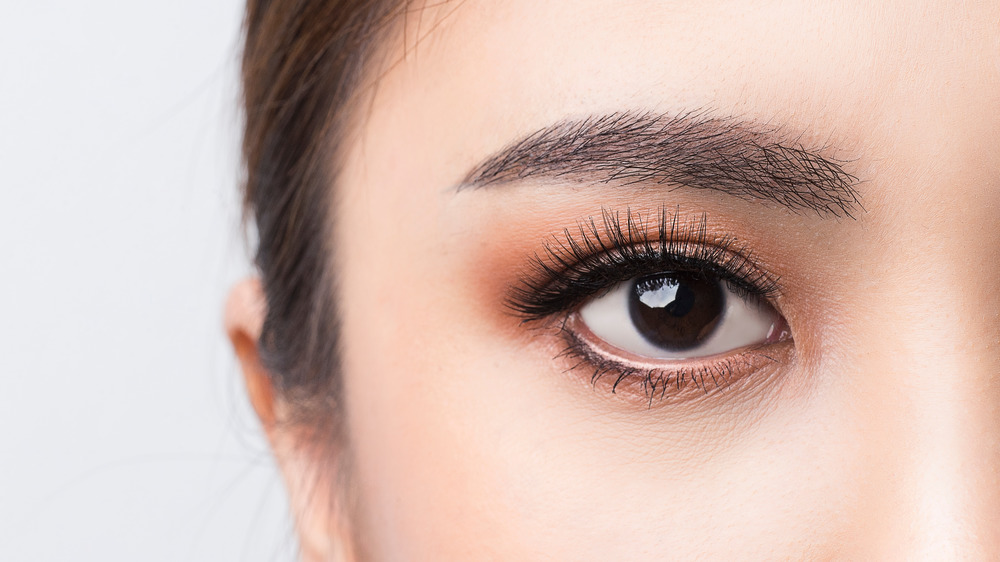When You Blink Too Much, This Is What Happens
Blinking is a natural reflex and bodily function that serves many health purposes (via Texas Children's Hospital). The semi-automatic act of rapidly closing and opening the eyelid protects the eye from dryness, bright light, and objects coming toward it. Blinking also regulates tears, which act as a natural cleanser for the eyes.
The number of times humans blink changes with age. According to the American Association for Pediatric Ophthalmology and Strabismus, newborns blink about two times per minute. That number increases to 14 to 17 blinks per minute for teens and stays about the same throughout adulthood. The number of blinks can also increase periodically in response to tears, bright lights, pain, and changes in temperature and humidity.
Excessive blinking is when blinking is more frequent than the typical rate. It occurs when the blinking reflex is overstimulated (via Healthline). This might happen for a number of reasons, including a need for eyeglasses, eye misalignments, irritations on the surface of the eye or under the eyelid, and in rare cases, may be the result of an underlying neurological disorder.
What causes excessive blinking and how is it treated?
Irritation on the front surface of the eye is a common cause of excessive blinking. Common reasons for irritation include dry eyes, ingrown eyelashes, irritants such as smoke, pollen, pollution, or dust, corneal abrasion, conjunctivitis, and inflammation of the iris or eyelid. Eye strain resulting from being in very bright lighting or spending a long time in front of a screen, as well as general stress or fatigue, can also lead to excessive blinking. Sometimes the culprit is vision problems or an eye movement disorder. Excessive blinking may also be a habit or nervous tic. While rare, neurological conditions, such as multiple sclerosis, Wilson's disease, and Tourette syndrome may cause excessive blinking.
Treatment for excessive blinking depends on its cause. It can be as simple as avoiding environmental irritants, or getting prescription eyeglasses or contact lenses to correct vision problems. Applying warm compresses, using over-the-counter or prescription eye drops, or using an eyepatch may also do the trick for infected or irritated eyes. Botulinum (Botox) injections can help improve ocular movement disorders. In some instances, surgery may be needed to correct a problem or align the eyes. If excessive blinking is caused by a neurological condition, your doctor will work with you to develop a treatment plan. If you have any concerns about your eyes or vision, consult a healthcare provider.


